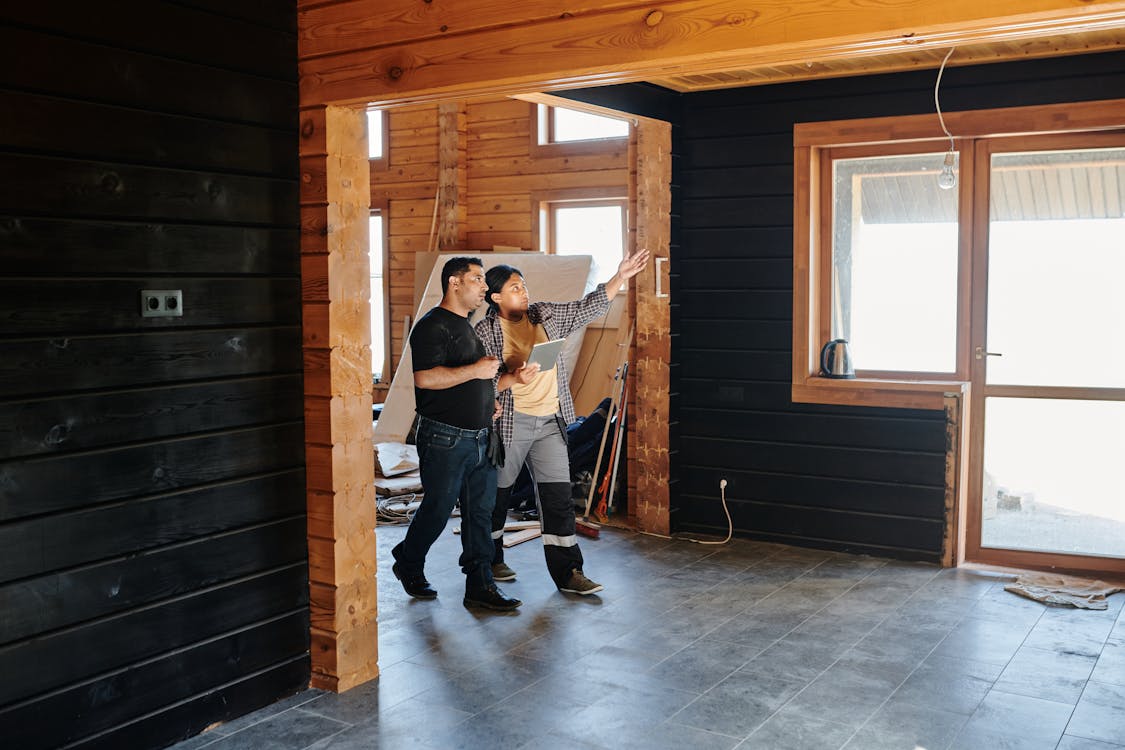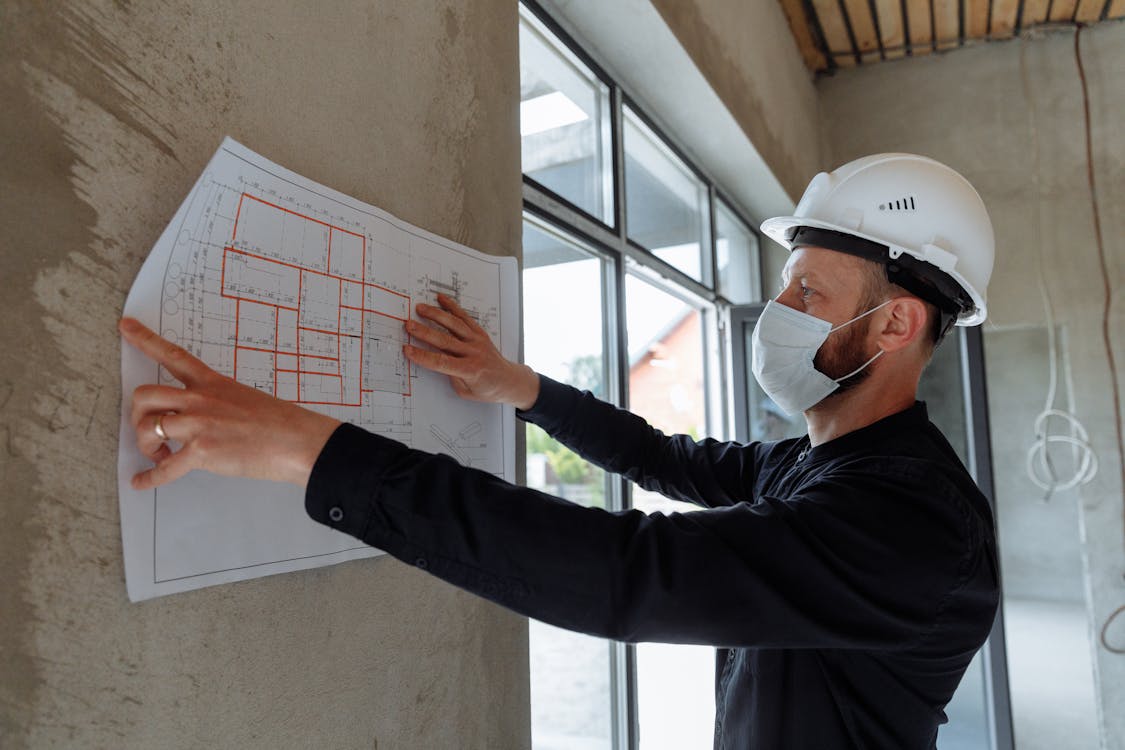Embarking on a home remodeling project is like preparing for a first date: you're excited, a bit nervous, and hoping you won't be left staring at an unfinished dinner—or in this case, an unfinished kitchen. The last thing you want is a contractor who disappears faster than your leftovers. Let's dive into the nitty-gritty of finding home remodeling contractors who will stick around longer than just the demo phase.
1. Conduct Thorough Research
Before you even talk to a single contractor, gather a diverse list of potential candidates. Begin by diving into online reviews, consulting local trade associations, and asking for referrals from friends, family, or neighbors who have successfully navigated home remodeling projects. It’s essential to leave no stone unturned in your research. This initial phase isn’t just about finding a contractor—it’s about learning the market, gauging reputations, and building a robust shortlist of candidates who are likely to deliver on their promises.
Dig deeper by exploring each contractor’s website and social media profiles, and consider using platforms dedicated to home remodeling feedback. Look for consistent messaging, evidence of previous work, and a professional presentation that reflects a commitment to quality. This stage is your opportunity to separate the well-established home remodeling contractors from those who may not have the credentials or the track record to stick around after the demo. Knowledge is power, and doing your homework will empower you to make an informed choice.
2. Verify Licenses and Certifications
Licenses are more than just pieces of paper—they’re proof that the contractor has met specific local and state standards. Contact your local licensing board or use online verification tools to ensure that each contractor on your list possesses a valid, active license. A licensed contractor isn’t just a formality; it’s a critical trust signal that speaks to their expertise and adherence to legal and regulatory requirements. Furthermore, ensure that these licenses are specialized if your project demands high-tech skills or specific renovations.
Along with the license, check for any industry-specific certifications. Certifications from recognized organizations not only validate technical skills but also demonstrate a commitment to continuing education in home remodeling. Contractors who invest in advanced training and certifications are often more updated on the latest construction techniques, safety protocols, and best practices. This enhanced knowledge base can be especially crucial when technical complications arise during a remodel—helping you navigate challenges effectively and keeping your project on track.
3. Assess Insurance Coverage
Dive into the specifics of the coverage by asking detailed questions: What does the policy cover? Are there any exclusions you need to be aware of? Discuss these points openly with your potential contractor. Understanding the limits and scope of their coverage gives you peace of mind and ensures that your remodeling project is insulated from unexpected liabilities. It’s also a marker of the contractor’s professionalism—if they’re up front about their policies, they’re likely to be transparent throughout the entire renovation process.
4. Review Past Work and References
Reviewing a contractor’s portfolio is a vital part of the vetting process. Look for documented projects that align with the scale and style of your home remodeling needs. High-quality images, detailed project descriptions, and client testimonials can help you gauge the quality of workmanship and the contractor’s attention to detail. When you spot inconsistencies or lackluster results, it might be a red flag that the contractor is not a perfect match for your project. Remember, your home deserves nothing less than excellence.
Take your investigation a step further by reaching out to previous clients. Ask for references and make sure to contact them directly. A conversation with past clients can reveal insights that aren’t evident in a portfolio. Find out if the contractor adhered to timelines, managed budgets effectively, and communicated transparently throughout the project. Their experiences will provide an unfiltered view of what to expect, ensuring that you partner with someone reliable who won’t vanish after the demo.
5. Obtain Detailed Written Estimates
6. Scrutinize the Contract
The contract is the backbone of your project—it outlines every detail, from the scope of work to payment schedules and timelines. A solid contract should leave little room for ambiguity. It must detail the specific tasks, materials, and services the contractor will provide. Inspect this document meticulously and ensure that every verbal promise is captured in writing. A well-drafted contract is your first line of defense against miscommunication and project delays, setting clear expectations for both parties.
In addition, the contract should include well-defined clauses on what happens if changes occur or if deadlines aren’t met. Look for provisions related to dispute resolution, termination conditions, and warranties on workmanship and materials. Don’t hesitate to request revisions or clarifications on any confusing sections. Investing time in understanding and negotiating the contract is crucial—this document will govern your entire relationship with the contractor. Taking these extra steps now could save you extensive headaches later, ensuring that your home remodeling journey stays on track from start to finish.
7. Monitor Communication and Professionalism
8. Understand Permit Obligations
Permits are a fundamental part of any significant home remodeling project, and understanding the permit obligations is essential for both compliance and safety. A knowledgeable contractor will be well-versed in the permit requirements of your area and assist you in securing them. Whether it’s for structural changes, electrical work, or plumbing upgrades, obtaining the proper permits ensures that the work meets local building codes and safety standards. This step is not just bureaucracy—it’s a critical safeguard for the integrity of your home and the longevity of the remodel.
Engage your contractor in a detailed discussion about which permits are required and who will be responsible for obtaining them. This conversation should cover the timeline for permit acquisition and any potential delays that could affect your project. Understanding these technical details helps you avoid fines and ensures that the remodel progresses without legal hitches. Taking the time to address permit obligations upfront demonstrates foresight, while also highlighting your contractor’s competence in managing all the complexities of a thorough home remodeling project.
9. Be Wary of Large Upfront Payments
Your financial security is as important as the construction quality. While a deposit is typically required when starting any home remodeling project, you should be cautious of contractors who demand a large sum upfront. Instead, negotiate a payment schedule that’s tied to clearly defined milestones and deliverables. This method not only safeguards your investment but also helps keep the contractor accountable for each completed phase of the project.
Delve into the specifics of how payments will be managed. Ask for a breakdown of what each payment covers and what conditions must be met before the next installment is released. Consider setting aside funds in escrow to protect your financial interests in case the contractor fails to deliver as promised. A well-structured payment plan acts as a financial checklist, ensuring that you release funds only when tangible progress is observed. By carefully managing upfront payments, you’ll avoid potential financial pitfalls and ensure that your home remodeling project stays financially feasible from start to finish.
Wrapping It Up
Finding reliable home remodeling contractors is a multifaceted process that demands diligence, attention to detail, and proactive communication. With thorough research, a careful review of credentials, and a detailed understanding of contracts and permits, you can significantly reduce the risk of contractor ghosting. Happy remodeling—and here’s to a project that not only transforms your home but also delivers peace of mind every step of the way!


.jpg)

.jpg)



.jpg)

